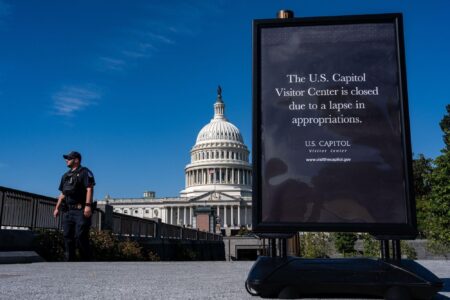Newborn Investment Accounts: A Fresh Strategy for Securing Financial Futures of American Families
Former President Donald Trump has recently put forward a groundbreaking proposal aimed at establishing dedicated investment accounts for every newborn in the United States. These accounts, informally known as ŌĆ£Trump accounts,ŌĆØ are designed to provide infants with a financial head start by investing an initial government-funded sum that grows over time. The initiativeŌĆÖs core objective is to reduce wealth disparities and empower future generations with capital that can be used for higher education, purchasing a home, or starting a business.
This plan introduces several innovative features to ensure broad participation and effective fund growth:
- Universal Enrollment: Automatic registration of all newborns to guarantee inclusivity.
- Seed Capital: A government-provided initial deposit to jumpstart each accountŌĆÖs growth trajectory.
- Professional Fund Management: Expert oversight to balance risk and returns through diversified portfolios.
- Flexible Access: Funds can be withdrawn upon reaching adulthood or for key life milestones such as education or entrepreneurship.
| Feature | Specification |
|---|---|
| Initial Government Deposit | $1,000 per newborn |
| Investment Vehicles | Equities, Bonds, Exchange-Traded Funds (ETFs) |
| Management Fees | Under 0.5% |
| Withdrawal Eligibility | At age 18 or upon achieving specific milestones |
Economic Analysts Evaluate the Long-Term Effects of Trump Accounts on Wealth Accumulation
Financial experts are actively assessing the potential ramifications of the proposed ŌĆ£Trump accountsŌĆØ on the nationŌĆÖs investment culture and economic growth. Advocates suggest that by embedding investment habits from birth, these accounts could cultivate a generation more attuned to financial planning, potentially leading to increased intergenerational wealth. However, skeptics caution that the initiativeŌĆÖs success depends heavily on prudent fund management, market conditions, and the governmentŌĆÖs fiscal commitment.
Critical factors under discussion include:
- Ability to maintain steady returns despite market fluctuations.
- Long-term budgetary implications for federal finances.
- Impact on socioeconomic equity and whether the program narrows or widens wealth gaps.
- Regulatory frameworks to protect beneficiaries and ensure transparency.
| Aspect | Projected Outcome | Expert Opinion |
|---|---|---|
| Market Returns | Moderate to robust growth potential | Generally positive but with inherent risks |
| Government Expenditure | Increased fiscal demands | Concerns about long-term sustainability |
| Wealth Equality | Varied effects depending on policy design | Calls for inclusive safeguards |
Obstacles and Controversies Surrounding the Launch of Baby Investment Accounts
While the concept of securing financial futures for newborns is widely appealing, the ŌĆ£Trump accountsŌĆØ proposal has encountered significant criticism from economists, policymakers, and advocacy groups. Key concerns revolve around funding transparency, administrative feasibility, and equity implications. Questions persist about how these accounts will be financedŌĆöwhether through tax hikes, budget reallocations, or increased national debtŌĆöand the potential strain on public resources.
Critics also warn that without careful design, the program might unintentionally deepen economic disparities, as families with greater means could supplement the governmentŌĆÖs initial investment, leaving disadvantaged children behind. Additionally, managing millions of accounts over decades presents logistical challenges, including regulatory compliance, fraud prevention, and ensuring fiduciary responsibility.
Summary of primary challenges identified by experts:
- Unclear Funding Sources: Ambiguity around sustainable financing models.
- Potential for Increased Wealth Inequality: Risk of uneven benefits across socioeconomic groups.
- Complex Administration: Difficulties in long-term account oversight and fraud mitigation.
- Economic Consequences: Uncertain effects on national debt and inflationary pressures.
| Challenge | Possible Consequence | Expert Recommendation |
|---|---|---|
| Funding Model | Higher taxes or increased government borrowing | Develop transparent, sustainable funding strategies |
| Equity Issues | Unequal wealth growth among demographics | Implement targeted support for low-income families |
| Program Governance | Risk of mismanagement or fraud | Establish rigorous regulatory oversight |
Strategies to Improve Access and Enhance the Effectiveness of Trump Accounts
To maximize the reach and benefits of these newborn investment accounts, policymakers should prioritize removing obstacles that disproportionately affect low-income families. Automatic enrollment at birth combined with accessible, multilingual educational materials can empower parents from diverse backgrounds to engage confidently with these financial tools. Integrating the accounts with existing social welfare programs could also improve outreach and ensure no eligible child is excluded.
Optimizing the programŌĆÖs impact requires a balanced approach that fosters growth while protecting the principal. Recommended measures include:
- Tax Benefits: Incentivize contributions from family and community members to supplement initial funds.
- Cost-Effective Management: Partner with reputable financial institutions offering low fees and transparent reporting.
- Ongoing Evaluation: Conduct and publish regular impact assessments to refine policies and maintain accountability.
| Policy Element | Recommended Approach | Anticipated Result |
|---|---|---|
| Enrollment Process | Automatic registration at birth | Increased participation across all demographics |
| Educational Outreach | Multilingual, easy-to-understand resources | Better-informed account holders and guardians |
| Financial Oversight | Low fees with transparent reporting standards | Sustained, reliable investment growth |
Conclusion: The Future of Trump Accounts and American Economic Policy
As discussions around economic reform and wealth inequality intensify, the proposal to create ŌĆ£Trump accountsŌĆØ for newborns introduces a novel approach to fostering early financial empowerment. While the concept holds promise for enhancing long-term prosperity for American families, its ultimate success will depend on thoughtful implementation, sustainable funding, and inclusive policies. The upcoming legislative debates and expert analyses will be pivotal in shaping whether this initiative can become a cornerstone of the nationŌĆÖs economic strategy.







